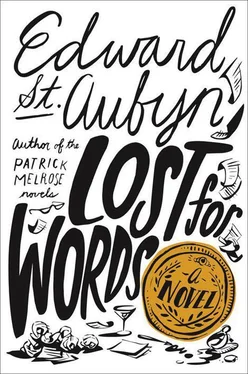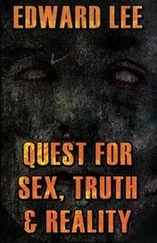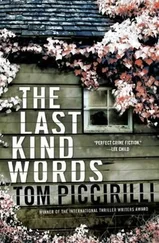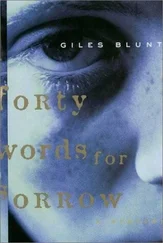Malcolm could hear himself stumbling from one platitude to another, but there was nothing he could do beyond hoping to survive. What was it in his nature that destroyed these moments of potential triumph? Why had he made his fatal speech about Scottish independence when he appeared to be rising inexorably toward a cabinet post? Why had he proposed to two women on the same day and in the ensuing muddle lost both of them, although they had both accepted? Why had he not declared his interest in The Greasy Pole when the committee was considering it? He couldn’t think about it now, that flaw that made him throw away the game at the last moment. The one thing he knew was that he must stop talking about writing. Anything he said might be taken down and used by the press when they exposed the Greasy Pole scandal. He glanced up and thought he could make out figures twitching over their phones. The story was probably breaking as he spoke, appearing on people’s screens around the room, and being discussed by the pundits back in the studio.
‘What we have offered the public is the opinions of five judges who were all asking themselves the same basic question: “Which one of these books could be enjoyed by the largest number of ordinary people up and down this country?”’
How many times had he used that phrase in his political career? He was close to tears at the thought, but powerless to say anything meaningful.
‘When a journalist asked me what qualifications I had for this job…’
Why had he said that? He was like a criminal returning to the scene of his crime.
‘What I told him was that I’d taken my lessons from the best teachers of all: the British people.’
Flatter the audience, always works.
‘Now, if you would prefer to trust the opinion of one journalist who sets himself up as judge and jury and executioner for the entire prize, without having read all two hundred books we ploughed our way through, then be my guest.’
Oh, God, the good old combative approach.
‘Before I make the final announcement, I want to thank my fellow judges for their … for their passionate dedication to the cause of literature. I’m quite sure that we shall remain friends, reminiscing fondly about the ups and downs of the selection process in the years to come.
‘I would also like to thank Sir David Hampshire, in the year of his retirement. David has been the power behind the prize, always close to hand, ready to smooth ruffled feathers, and offer the wisdom he draws from his vast wealth of experience.’
Malcolm paused in vain for a round of applause.
‘And so, without further ado,’ he resumed, impulsively deciding that the public could do without any praise of the Short-Listed books or explanation of the committee’s final choice, ‘the winner of the 2013 Elysian Prize is The Palace Cookbook by Lakshmi Badanpur.’
* * *
John Elton snapped the stem of his wine glass.
Jo smiled triumphantly at Vanessa’s empty seat.
Alan stared down the well shaft of his empty panna-cotta ramekin.
Penny decided that ultimately it was not her responsibility if Nicola chose to gamble with her savings, but that she would chip in something towards a new roof.
Auntie let out a cry of unfeigned consternation. Camera lights were soon shining in her eyes and everyone at her table pressing forward to offer their congratulations. Yuri expressed his joy while reminding Auntie that she was under contract to Page and Turner.
‘Of course,’ she murmured, ‘my memoir … Oh, Sonny, I’m not sure I can manage.’
‘Of course you can. Remember who you are!’
‘I do remember who I am, but I don’t remember being a writer. Ah, Mansur, there you are. Please help me up, I’m feeling a little dizzy. Where have you been?’
‘I was near the stage, ready to do my duty; then I heard that your Highness had won and…’
‘Never mind all that,’ said Sonny.
‘Do his duty — what an earth does he mean?’
‘Auntie, you’re needed at the front!’
To Sonny’s relief, a young woman with a walkie-talkie came up to Auntie.
‘Could you please come to the podium as quickly as possible, Lakshmi? We’ve cut to our panel of critics in the studio, but we’ve got the news coming up in twenty minutes, and obviously everyone is very keen to hear your speech.’
‘I only wish I were very keen to make it,’ said Auntie, ‘but to tell you the truth, I’m dreading it. Where is Didier? Oh, Didier, it was so kind of you to write that speech for me, but I’m not sure I completely understand it.’
‘Excellent!’ said Didier. ‘If you understood it, no doubt you would disagree, but this way you can deliver it with perfect sincerity!’
Not entirely reassured, Auntie was led past dozens of tables where the words ‘absurd’ and ‘ridiculous’ seemed to be playing an unusually large part in the conversation. By the time she reached the lectern, she was so anxious that she wondered if she would be able to speak at all.
‘What is literature?’ she began, feeling that her voice was not her own. ‘What is this privilege we grant to certain verbal combinations, although they employ the very same words we use to buy our bread and count our money? Words are our slaves: they may be used to fetch a pair of slippers, or to build the great pyramid of Giza: they depend on syntax to make the order of the world manifest, to raise stones into arches and arches into aqueducts.
‘ The Palace Cookbook forces the recognition of this truth through the play of irony and absence: the only authentic relationship modernity can have with the classical ideals of equilibrium and lucidity. By appearing to use language for the most banal purpose, for the maintenance of our material existence through eating, we are thrown into a crisis of meaning. Is this all there is to life? And yet slowly, through the hypnotic reiteration of quantities and ingredients: rice, water, flour, oil, ounces, pounds, cups and teaspoons, the author invokes, through their absence, the impossible ambitions of the highest art. Right from the beginning, in the title itself and in the Introduction, we are in the presence of this paradox. The Palace, we are told, is ruined, abandoned, lost, and yet it stands behind the Cookbook, just as the matrix of syntax stands behind the banality of the semantic corpus, ready to transform it into the scandal of excess and transgression of utility that is art!
‘When Foucault tells us, in The Order of Things …’
Auntie couldn’t go on. She had no idea what Didier was driving at and felt that, whatever the consequences, she must tell the truth.
‘Ladies and gentlemen,’ she resumed, ‘I want to thank Monsieur Didier Leroux for writing me such a clever speech and trying to make me a worthy recipient of this famous literary prize, but I have to say that I am a simple woman and that what I set out to do when I wrote The Palace Cookbook was to record as many recipes as possible before they were irrevocably lost. These recipes have been passed down from head cook to head cook over the centuries, but never written down, being treated as a kind of secret family knowledge. Fortunately we were able to interview the last cook, Babu Singh, a few months before he died. Despite being very old and completely blind, Babu had a perfect recall of the recipes and was able to recite them like verses, day after day for a week. The way of life that accompanied those dishes has gone for ever — the tiger hunts, the elephant fights, the stables with a hundred matching polo ponies, the six hundred household staff, and the very special relationship between a maharaja and his people, who looked to him as children look to their father: for kindness and advice. The palaces have fallen into disrepair, or been turned into hotels — but I hoped that perhaps I could bring the culinary art perfected over many generations to a more varied world, and preserve some of the splendour of that tradition by sharing it more widely.
Читать дальше












